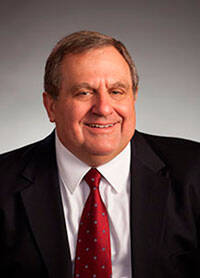Poland and America are like two trains passing each other in opposite directions. That is becoming increasingly clear as President Biden rolls out his progressive agenda. The key question looking forward: “Will government or consumers drive our economy?”
Poland broke the shackles of Soviet communist domination three decades ago. Free for the first time since World War II, Poland cast off its yoke of government control and central planning in favor of an American-style free enterprise system where consumers, not elected officials or bureaucrats, drive investment, production and buying decisions.
Today, Poland is the European Union’s largest eastern economy, the only member to avoid a recession in 2009. As of 2019, the Polish economy had been growing steadily for 28 years, a record high in the EU. That was before the coronavirus threw the world economy into a tailspin.
By contrast, the U.S. has been drifting toward more government control, tighter mandates, stimulus through direct subsidies, tax write-offs and tightening regulations. The glaring example is the drive to eradicate gasoline powered vehicles, and jettison natural gas fueled electricity generation and heating in homes, buildings and factories.
In America, there is a gargantuan “tug-of-war” between those who want less and more government control. That battle played out in our 2020 national election.
Personal animosities aside, there was a fundamental difference between an economy under Donald Trump and one under Joe Biden. Biden believes the path to restore prosperity is more government intervention, higher taxes, more regulation and subsidies — and that is where America is headed.
But government intrusion never works, and as the Polish people know all too well, it leads to shortages, higher prices and lost opportunities. Poles wanted to import American innovation which led to Washington Business Week establishing market-based economic education programs in Gdansk and Gdynia.
They were hungry to learn about the innovation and creativity of our market-based economy and how to apply it.
A visit to the Solidarity Museum in Gdansk is a stark reminder of life under a system of government control, restricted freedoms and mediocrity. One of the museum’s displays is a series of empty grocery shelves, a haunting reminder of the time when poor working people in Poland had only a meager selection of rationed food, clothing and household supplies.
Polish leaders saw Ford Motor as emblematic of the way our system works. When Ford leaders recruited Alan Mulally from Boeing in 2006, Ford was heading for a $12.7 billion loss. Poor management and an uninspired models had Ford on the verge of losing its No. 2 sales spot in the U.S. to Toyota.
Mulally’s leadership led to one of the greatest turnarounds in business history and it happened without a federal government bailout. He immediately took a risk and led the effort for Ford to borrow $23.6 billion by mortgaging all of Ford’s assets.
He used the money to finance a major overhaul and provide a cushion to protect for a recession or other unexpected event. At the time, the loan was interpreted as a sign of desperation, but is now widely credited with stabilizing Ford’s financial position.
Four years after Mulally arrived, Ford reported a $6.6 billion profit — the biggest in the sector that year — and Toyota ads were comparing its cars to Fords, not Hondas.
The Polish people rejected more government control of the market, government picking winners and losers, and government planning what consumers will get and what they won’t. They remember what that was like under that style of government.
America’s economic freedoms inspired a revolution in Poland and it is time we remember what made our nation the envy of the world.
Don C. Brunell is a business analyst, writer and columnist. He retired as president of the Association of Washington Business, the state’s oldest and largest business organization, and now lives in Vancouver, Wa. He can be contacted at theBrunells@msn.com.



